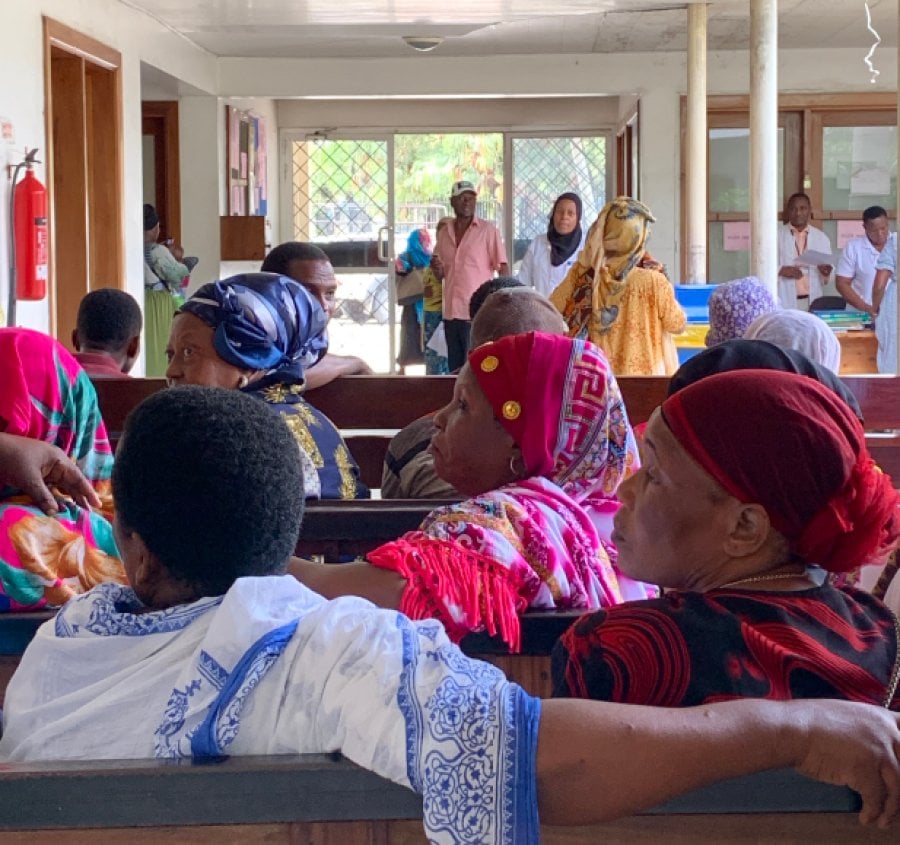PRESS RELEASE
19 October 2023 London School of Hygiene & Tropical Medicine London School of Hygiene & Tropical Medicine https://lshtm.ac.uk/themes/custom/lshtm/images/lshtm-logo-black.png
Entebbe, 19thOctober 2023 - The INTE-AFRICA trial has demonstrated that integrated management of HIV, diabetes, and hypertension can lead to improved patient retention in diabetes and hypertension care while maintaining high rates of HIV viral suppression. The study, funded by the European Union Horizon 2020 and the Global Alliance for Chronic Diseases, was conducted by the MRC/UVRI/LSHTM Uganda Research Unit, the National Institute for Medical Research in Tanzania, initially by LSTM, and later by the UCL Institute for Global Health across medium and large health facilities in Uganda and Tanzania.
The study aimed to evaluate whether integrated care, where patients with HIV, diabetes, or hypertension are managed by the same healthcare providers, shared facilities, and resources, could outperform standard vertical care, where services are provided separately for each condition.
The trial involved a pragmatic cluster-randomized, controlled approach with 32 health facilities and 7,028 participants in Uganda and Tanzania. The longstanding healthcare challenge in sub-Saharan Africa for chronic conditions is countered by this progress, offering hope for improvement.
Facts from the results of the study's findings
The study found that retention in care for participants with diabetes, hypertension, or both was similar in both study arms, exceeding 89.0%. For HIV, retention in care was also similar, exceeding 90% in both arms. HIV plasma viral suppression (<1,000 copies per ml) was high overall, exceeding 94% in each arm.
Changes in blood pressure between baseline and study end did not significantly differ between the two arms. However, the average decrease in fasting blood glucose between the two time points was significantly higher in the integrated care arm.
Providing integrated care for multiple conditions is cost-saving compared to standard care. There was no significant difference in provider costs between integrated and standard care for patients with single conditions.
Dr Meg Doherty, Director of the World Health Organisation Department of Global HIV, Hepatitis and STI Programmes said “This was a large ambitious and well-conducted study with the potential to change policy and practice. It is the first study to successfully test the concept of a fully integrated one-stop clinic for people with HIV or non-communicable conditions, with excellent HIV and NCD outcomes. It is exciting to see that by including hypertension and diabetes screening into the HIV clinic in these 2 countries, there was no change in HIV viral load suppression outcomes.
Dr Gerald Mutungi, Assistant Commissioner for Non-Communicable Diseases in Uganda said “this study is the culmination of more than 6 years of research, conducted in partnership with the Ministries of Health. It demonstrates that integrated management is effective and cost-saving. The findings will inform future control of non-communicable diseases on the continent."
Professor Moffat Nyirenda, the Head of the Noncommunicable Diseases (NCDs) Research theme at the Unit, said, “We are delighted to have contributed to this landmark study. The initial reaction from the scientific community and policy makers is most encouraging. There is a huge opportunity for a fundamental change in our approach to care of individuals with chronic health conditions on the continent.”
In sub-Saharan Africa, integrated chronic care services can raise the bar for patients with diabetes and hypertension, without compromising the well-being of people living with HIV. This innovation is a game-changer for the region’s healthcare.
“These results mark a significant leap forward in healthcare management in sub-Saharan Africa, with the potential to transform the lives of millions suffering from chronic conditions,” says Dr Ivan Namakoola, one of the authors and a Research Scientist at the unit.
It will be futile to save lives from HIV only for people to die from diabetes and hypertension, or vice versa. What do I benefit from taking antiretroviral therapy when I'm going blind from diabetes?" These sentiments were echoed by one of the study participants living with diabetes.
Another patient in Uganda said, “I have no problem with it because, we are all sick. Me, I’m very comfortable. You can’t know about the disease unless the person has told you what they are suffering from, we are all sick…”
Integrated care not only simplifies the patient experience but also leads to better health outcomes, which is particularly crucial in resource-constrained settings. The INTE-AFRICA trial is a monumental step toward improved healthcare in the region.
For more information:
- Link to full article: https://www.thelancet.com/journals/lancet/article/PIIS0140-6736(23)01573-8/fulltext
- Related information: https://www.latrobe.edu.au/news/articles/2023/release/a-cost-saving-option-for-chronic-care-in-africa
Contact: press@mrcuganda.org
If you enjoyed this article and would like to build a career in global health, we offer a range of MSc programmes covering health and data, infectious and tropical diseases, population health, and public health and policy.
Available on campus or online, including flexible study that works around your work and home life, be part of a global community at the UK's no.1 public health university.